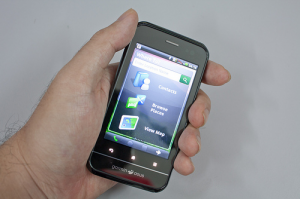Whether it’s for business or pleasure, one thing that the majority of travelers rely heavily on is their smartphones. That’s because these devices can be a lifesaver when it comes to scheduling appointments, booking hotels, looking up city maps and connecting with airports and ticketing agencies. But they are also often laden with crucial personal data that can prove devastating were it to fall into the wrong hands. And with an estimated 113 mobile phones lost or stolen every minute in the U.S. alone, the chances of having a smartphone lifted while traveling are far too great to ignore.
That’s why it’s vital for travelers to go on the offensive and protect their smartphone data before heading out on that trip. The good news is that taking care of these safety precautions can be accomplished in a matter of minutes. Here’s how.

Change Passwords
Once every six months, preferably. Experts also recommend eschewing common words in favor of ones with unique meanings, or even acronyms. The rule of thumb is that passwords should be a minimum of eight characters and ideally contain at least one number.
Update Software
A must-do for any traveler about to embark on a trip. Checking online for any firmware updates is crucial, as is completing any and all updates prompted by the handset. This may seem like an insignificant task, but it will protect the smartphone from any new bugs out there.
Don’t Disengage Security Settings
Most modern smartphones of any stripe come equipped with solid factory security settings. This goes for Android devices as well. The problem lies with the fact that many folks will render these settings useless by doing things such as making browser changes. Those who don’t understand precisely what settings they are adjusting would do well to avoid the changes altogether.
Stay Off WiFi Hotspots
It’s understood that some public WiFi usage is necessary for travelers, but this is best kept to a minimum. That’s because there are a number of unscrupulous “fisherman” in these areas just waiting to steal data from unsuspecting Internet surfers. Criminals can even gain access to device passwords in this manner.
If you must use WiFi, confirm that you’re actually using the one the coffee shop, hotel, or airport provides, and not some criminal’s setup. Also, you can set your firewall to block all incoming connections, so that programs you don’t know can’t gain access to your phone or computer.
Disable Cookies and Auto Complete
Being able to enter passwords automatically is a useful feature, but it can present a security risk. Just to be on the safe side, travelers should turn off cookies and AutoComplete and replace the function with a third-party app if need be.
Do App Diligence
Just because something is advertised in app form doesn’t make it legitimate. Indeed, there are many sneaky applications out there designed by shady developers with the sole intention of separating smartphone owners from their precious data. The best thing to do is make sure an app has a majority of positive customer reviews before purchasing.
The above strategies are all tech-guru approved, and should provide travelers with the best shot at data protection should a loss or theft occur. In the end, the best advice may just be to keep that smartphone in a front pants or jacket pocket and always be aware of one’s surroundings.
Sara Wells is a tech blogger who writes on behalf of companies such as Protectyourbubble.com smartphone insurer, a popular company that insures gadgets people can’t live without.

